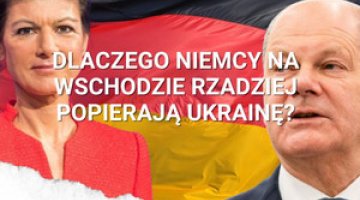Acquiring resources and legitimising the partnership: Scholz’s visit to Central Asia
From 15 to 17 September, Chancellor Olaf Scholz (SPD) engaged in bilateral meetings with regional leaders in Samarkand and Astana, as well as participating in the second Central Asia–Germany (C5+Germany) summit. He was accompanied by the Federal Minister of the Interior, Nancy Faeser (SPD), the Secretary of State at the Ministry for the Economy and Climate Action, Michael Kellner (Greens), and a business delegation that included representatives from Siemens Energy, HMS Bergbau, and SVEVIND Energy.
During the visit, Uzbek-German and Kazakh-German economic forums were held, attended by Scholz, the Presidents of Kazakhstan, Kassym-Jomart Tokayev, and Uzbekistan, Shavkat Mirziyoyev, along with representatives from various companies. Germany signed a comprehensive partnership agreement on migration and mobility with Uzbekistan and extended the contract for Kazakh oil supplies until 2025. Additionally a framework agreement for the construction of an airport in Khorgos and a letter of intent to build a container terminal in Aktau by 2030 were signed.
This was the first visit by a German chancellor to Central Asia in eight years, highlighting the region’s economic importance to Germany and reinforcing the strategic partnership established in October 2023 (see ‘The ‘Central Asian Five’ in Berlin: time for a strategic partnership’). The agreements represent a success for the Central Asian nations, as they secure the inflow of German investments and technology while cementing bilateral cooperation in raw material supplies. This development has strengthened their international standing, making them increasingly important partners for one of the EU’s key countries, aligning with their strategy to balance relations with Russia and China (their most important partners) and the West.
Commentary
- Germany continues to bolster its image as a key player with significant influence on the EU’s policy towards Central Asia, a stance welcomed by both Astana and Tashkent. Since February 2022, Germany has been actively pursuing a strategy to diversify its supplies of rare earth metals away from China and to seek new sources of energy imports as alternatives to Russian resources. The announcement of a meeting in Germany in spring 2025 between the foreign ministers of the Central Asian countries and their German counterpart underscores the political will to develop relations within the C5+Germany format. Furthermore, a conference focusing on think tanks and civil society organisations from the C5 countries is scheduled to take place in Berlin this November. This initiative should be seen as a valuable opportunity for these nations to enhance people-to-people contacts between Germany and Central Asia, which is one the partnership’s key goals.
- The Central Asian nations, particularly Kazakhstan and Uzbekistan, are striving to develop cooperation with Germany based on the ‘resources for technology’ principle. President Tokayev has invited German industry to modernise Kazakhstan’s mining sector and has expressed a willingness to increase raw material exports to Germany. This aligns with Berlin’s objectives, as it seeks to purchase oil, lithium, copper, and green hydrogen. In 2023, Kazakhstan was Germany’s third largest supplier of oil. During the visit, an agreement was signed to extend crude oil imports to the Schwedt refinery until the end of 2025, with the supply volume increasing from 1 million to 1.4 million tonnes. Additionally, a preliminary agreement on the extraction and import of rare earth metals was signed with Uzbekistan.
- For Germany, the migration agreement with Uzbekistan was a major achievement of the visit. This agreement adds to similar accords signed with Kenya, Morocco, Colombia, Georgia, and India, all aimed at securing the inflow of skilled workers to Germany while curbing illegal migration. Cooperation with Uzbekistan is also intended to facilitate the deportation of Afghan nationals from Germany. According to German media, Uzbekistan would serve as a transit country and mediate negotiations with the Taliban government, which is not recognised by Berlin. Uzbekistan’s intensified diplomatic contacts with Afghanistan prior to the visit seem to support this scenario. Reducing illegal immigration is a key topic in the campaign leading up to the elections scheduled for 22 September in Brandenburg, where the anti-immigration AfD party may achieve success, as it did in Thuringia (see ‘Success for the AfD and the BSW in Thuringia and Saxony’). The agreement also aligns with Uzbekistan’s goals, as the country, amid a demographic boom, seeks to redirect part of its Uzbek migrant workforce from Russia to EU nations in an organised manner.
- The Russian invasion of Ukraine was a marginal topic during Scholz’s meetings with Presidents Mirziyoyev and Tokayev, as well as at the C5+Germany summit. The German chancellor reaffirmed Germany’s continued support for Kyiv while exploring possibilities for a peaceful resolution to the conflict that would involve Russia. The Central Asian countries agreed to maintain dialogue on adhering to the sanctions regime against Russia; however no enforcement mechanisms were specified to avoid straining their relationships with their main political and economic partners, China and Russia. Consequently, Berlin is focusing on developing cooperation in less controversial areas.




